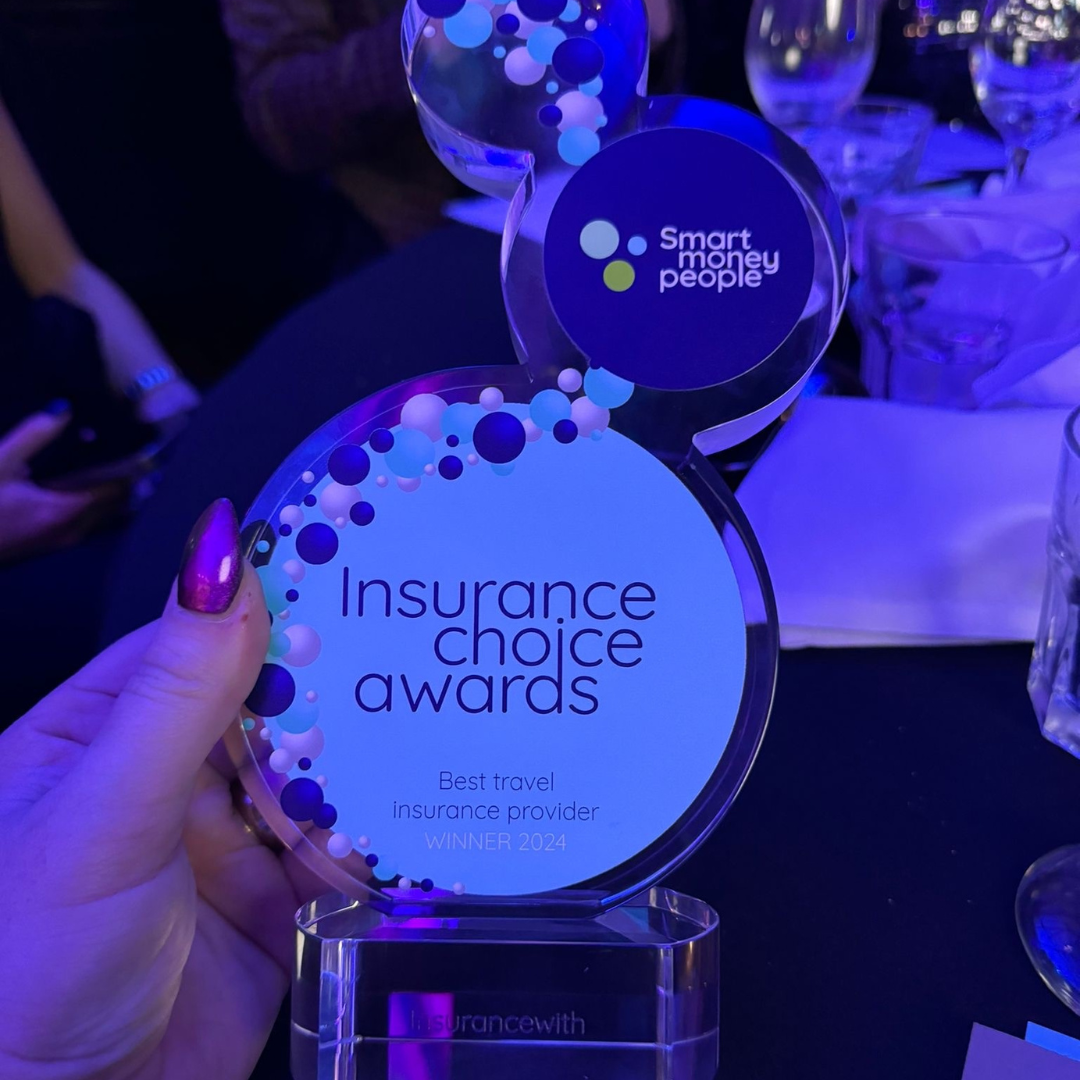Holidays should all be about rest and relaxation in an exotic or favourite destination and making memories with new experiences. Unfortunately the dramatic turnaround in pace and change in lifestyle mean that bodies can be put under strain. With a little planning and management, you can make sure that you return home feeling just as good as when you arrived in your dream destination. Below, we’ve listed a few stay-well strategies to do throughout your holiday.
New country, new food, new germs. This all means that you have to be extremely careful when trying new foods and going to new places because your immune system is out of its comfort zone and susceptible to bacteria or viruses. Indulging and eating out a lot of the time means you don’t have total control about how your food is cleaned, handled or kept, which can lead to various bacteria thriving and putting you at risk of falling ill. Prevent a stomach upset or food poisoning by keeping your immune system healthy with probiotic supplements – supplements that keep your digestive tract healthy- for five days before you leave for your trip. To add further power to your immunity, make sure you get a full 8 hours sleep the night before you leave – the stress of travelling can lower your immunity to things like cold and flu germs which effect every one in five plane passengers within a week of their flight.
Avoid foods like cold meats and fish, anything with egg in it which has been open for a while, like mayonnaise – these are safer in single closed sachets, and avoid buffet foods. Cheese and other dairy products are also better to avoid if possible, especially if you haven’t bought the item fresh yourself, as it’s hard to tell if the product has been pasteurised. If you’re eating out, order your meats ‘well done’ or ‘medium well’ as this ensures the meat has been thoroughly cooked, but only eat them if they are still hot when served to you, as this means all bacteria will have been killed off, instead of leaving the meat to cool and giving the bacteria a chance to spread.
Those at the biggest risk for foodborne illness are the pregnant, the elderly and those with weakened immune systems, but travelling can wear down even the healthiest travellers. It’s easy to neglect proper nutrition, especially when surrounded by food which you want to try or eat, and eating at irregular times can compromise the immune system and lead to illness. When you’re away, try and maintain a balanced diet with plenty of fruit and vegetables, and stay hydrated by drinking lots of bottled water. However, make sure you do indulge yourself – you are on holiday, after all.
Your stomach might not be up to the challenge of taking on some of the foods you encounter whilst you’re on holiday but there’s something more dangerous and more likely to give you food poisoning than holiday indulgences. Water, especially ice, are the main causes of dietary and digestive problems whilst people are abroad. We take our clean, filtered, and readily available water here for granted and so we’re not accustomed to the water available in other countries. To stay safe, avoid ice and tap water, and boil any water you want to drink or use first. You don’t always have to drink the contaminated water to be exposed to a potentially holiday-ruining bacteria. Think about the water you brush your teeth with or watch your contact lenses or dentures in, too.
You can check whether your destination has had any outbreaks of salmonella, e.coli or any other foodborne illnesses by checking the World Health Organisation website.
Every year travellers from the UK become ill whilst overseas due to diseases, bacteria and viruses which can be prevented through adequate vaccinations before departure from the UK. It’s important that you discuss any planned travel with your GP or consultant to ensure you have the correct vaccinations for your destination/s and about any continuing medication like anti-malaria tablets you may need.
Vaccinations may be an entry requirement for some countries, so check with the embassy or online about what injections you might need to have before you travel. If you visit the country without having the correct vaccinations, you may be refused entry past security and customs or required to have the vaccination there and then. It’s never too late to vaccinate yourself against these diseases, but some vaccines require a long time to take effect.
Please note that the guidelines below are not specific to any particular country but an idea of what immunisations to expect when you consult your GP about visiting your destination.
Whatever you’re planning on doing for your holiday this year – whether it’s sunbathing in the South of France or kayaking off the coast of Mexico – worrying about your holiday budget is the last thing you want to be thinking about instead of enjoying your trip. A budget can hang over us like a raincloud, especially during those precious times away when you’re more likely to overspend, but with a little extra planning, research and preparation, it doesn’t have to be such a burden.
Plan well in advance
The key to optimal holiday spending is planning and budgeting well in advance. When planning your trip, balance your calculated expenses based on your destination, transport, accommodation, living costs (food, drink) and what you’re going to do when you get there (fun activities and entry costs). When you’re planning, make sure that you don’t choose a destination that means you have to stretch your budget in all areas.
By saving up your pennies well before you’re due to leave, you’re more likely to have more money for ‘fun’ by the time it comes for you to go without having to cut into money dedicated for anything else. If you leave things until later, you might have to skimp and miss out on things you didn’t want to. You can increase this ‘fun’ portion of your budget and have more money for exciting activities by cutting other areas of your budget. For example, look around for deals on accommodation, transport or other amenities, as this can sometimes give you extra money to play around with.
Create mini-budgets
After the bigger budgeted investments of transportation and accommodation, it’s sometimes easier to set a daily budgets for expected food, drink, activities and souvenir shopping costs. Use only that amount of cash each day and take your credit card with you in case of emergency expenditure such as taking a taxi to the hospital. Make sure you keep an eye on how much is left in the envelope as the day goes on to allow you to budget further, and have a spare 10% as a monetary cushion for emergencies or unexpected circumstances.
Don’t be over-generous
Whilst it can be tempting to bring home several things for your mum or friend because of the great deals abroad, it’s actually better for your budget if you make a list of people you want to buy gifts for along with a rough estimate of how much you want to spend on each person. If you hit a market or find a nice shop where you can find a few gifts for people, try and negotiate a discount for buying so many items. Shop with your budget in mind, don’t just pick up the cheap gifts that people wouldn’t really appreciate.
When buying souvenirs and gifts for yourself, it’s easy to pick up cheap and tacky things which we regret buying later. Make sure that when buying things for yourself or your home, you’ll actually display it and make use of it, rather than packing it away in a drawer. Think about what you can get whilst you’re out there, for example, if you can get a silk scarf relatively cheaply at your destination of choice and it costs three times as much at home, buy it when you’re on holiday. Photos are an inexpensive souvenir too, you can always buy photo frames when you’re back so take lots of photos and store some memories on your wall or on your shelves.
Eat like a local
Restaurants, cafes and street vendors in touristy areas are usually priced well above their value in order to make the most from their temporary visitors in such an exclusive location. For example, having a coffee right on Times Square would cost a significant amount more than one a couple of streets away because it’s specifically created with the purpose of being a tourist trap. If you can’t afford to spend extra amounts of money on what is essentially just a hot drink, snack, or lunch, ask the concierge, your travel operator or check online for cheaper alternatives. You can also save a lot on breakfast, lunch and snacks by shopping at local markets – which also allow you to experience the local culture at the same time.
Suffering from a stroke is an extremely traumatic experience, both for mind and body. A holiday can be extremely helpful as part of the healing process, giving you the time and space that you need to fully recover. Life post-stroke does carry a degree more complexity, so it is important that your holiday plans change to accommodate the changes in your personal circumstances, especially if you’re travelling abroad.
In this article we’ll illustrate some practical ways that you can plan for a holiday after a stroke, allowing you to confidently enjoy your time abroad.
As with anyone about to embark on a holiday abroad, travel insurance is extremely important; while things rarely do go wrong on holiday, you want to ensure that you have appropriate coverage on the off chance that something does. As someone who has had a stroke, insurance will be harder to find, as most insurance companies will be unwilling to cover the extra risk. Indeed, the wide spectrum of post-stroke side effects make the task of assessing an individual particularly difficult, especially for insurers that lack experience in this area.
Fortunately, Insurancewith was started specifically to allow those suffering from debilitating or high risk medical conditions to gain travel insurance. As we work on a case by case basis, utilising a bespoke medical screening system, we are able to form a far more accurate picture of your medical situation than other insurance companies, and therefore provide you with a much fairer, cheaper premium. When your case is assessed you’re being seen as an individual, not just as a stroke victim, and both the premium and coverage of your Insurancewith policy will reflect this.
It’s always a good idea to check ahead with both the foreign office, and, if necessary, with a relevant travel authority from the country you intend to travel to, as to what medication is and isn’t allowed to pass across their border. The last thing you want to happen is for essential medication to be confiscated once you reach your destination.
Another thing to bear in mind is how easily luggage can go missing in airports or transport hubs; a good practice to get into when travelling with essential medication is to pack more than you would normally need for the time period of your holiday, and to spread this medication over multiple pieces of luggage. This way, if one goes missing, you still have medication available, to you. It almost goes without saying that you should also ensure that you have medication in your carry-on luggage, to ensure that you are not caught without them during the flight!
In relation to flying post-stroke, the best policy is always to ask your doctor. Generally speaking you should definitely avoid flying for the first two week post stroke, as this is the highest risk time period for side effects to materialise. It is just an unfortunate fact of flight that there are numerous factors that can exacerbate side effects from your stroke, or even suffer a second stroke.
One of the most well-publicised risks associated with travelling via airline is deep vein thrombosis (DVT), a condition that arises as a result of the long periods of inactivity that are endemic with air travel. Sitting still for long periods of time slows blood flow, which can lead to blood clots forming in your veins. In air travel related cases of DVT, this most often occurs in the leg. If the clot breaks away and reaches your brain, blood flow to your brain could be prevented, causing a stroke. While this is a risk for everyone who travels on a plane, you are at additional risk from DVT if you have already suffered a stroke.
This means that DVT prevention is even more important if you’ve had a stroke, so if you find yourself travelling by plane post-stroke, be sure to utilise the following the DVT risk reduction techniques. Fortunately, these DVT risk prevention techniques are easy to perform, and require minimal space, which is doubly helpful in the tight confines of a plane! Firstly, you can wear elasticated compression stockings, an easy to purchase passive DVT prevention tool. Secondly, make an effort to stay hydrated, as dehydration increases the risk of blood clots by thickening your blood. Lastly, manually re-establish circulation! By performing small exercises throughout the flight, you promote blood flow, minimising the chances of blood clotting, and therefore minimising the chances of DVT developing.
Summer is approaching rapidly, and this means that many people in the UK will be considering going abroad on their holidays. If you’re a diabetic, it is particularly important for you to plan appropriately for your holiday, as many aspects of your daily routine and medication schedule may need to be changed. As well as the additional considerations you must take into account with foreign travel as a diabetic, insurance premiums can also be higher as a result of the added perceived risks.
insurancewith: are committed to helping the sufferers of many illnesses and debilitating conditions to be able to confidently travel abroad, knowing that they are covered by travel insurance that is not only comprehensive, but fair. insurancewith: created a specific travel insurance policy; insurancewith: Diabetes to combat this. As insurancewith: has gained an in depth understanding of diabetes, from extensive work with diabetes charities, and is therefore far better positioned than other insurance companies to offer a superior deal on travel insurance for diabetics.
When preparing for a holiday, travel insurance is exceptionally important, but should be far from the only consideration. This is no different for diabetics, and in this article we intend to set out exactly which steps and precautions you should take if you have diabetes and intend to travel abroad this summer.
In 2011 alone 26 million pieces of luggage went missing worldwide; this is a staggering statistic in its own right, but when you’re taking essential medication on holiday with you, it becomes that much more concerning. A sensible precaution to take while preparing to go on holiday is to carry twice as much medication as you would normally utilise for the timeframe of your holiday. This way you can split supplies between different pieces of luggage, reducing the likelihood of losing all of it in one go.
It is essential that you carry both diabetic identification and a covering letter from GP. These will not only ensure that you get the correct medical care should something unfortunate happen, but also allow you to carry your essential medication. The benefits of this are clear; in a post 9/11 world, airport security are going to be very hesitant to let you board a plane carrying either syringes, or unexplained medication!
It is also critically important that you store your medication appropriately; insulin in particular can become ineffective if exposed to particularly high or low temperatures, so be mindful of the environment you’ll be holidaying in. Altitude can interfere with specialist medical equipment, glucometers in particular, so if you’re likely to be staying in a dramatically higher or lower locale, it is crucial to check with your GP so you can understand how to counteract the effect.
There are a number of factors geographic, environmental factors that can have a negative effect on diabetes management while on holiday. One to take into account before the plane has even left the UK, is flight delays. No-one enjoys this unfortunate side effect of mass scheduled travel, but as a diabetic these delays can carry additional dangers: make sure you carry additional snacks to deal with any drops in blood sugar!
The particular climate of your destination can also affect glucose and insulin levels, so ensure that you’ve compensated for different time zones when deciding dosage and application time. In extreme heat, ensure that you are replacing lost fluids.
As well as climate, it’s important that you monitor and compensate for any changes in activity level; some people prefer a chilled out holiday by the pool, others an action-packed adventure, but you’ll need to be sure you manage your blood glucose levels in a manner that is appropriate for whichever you have chosen!












